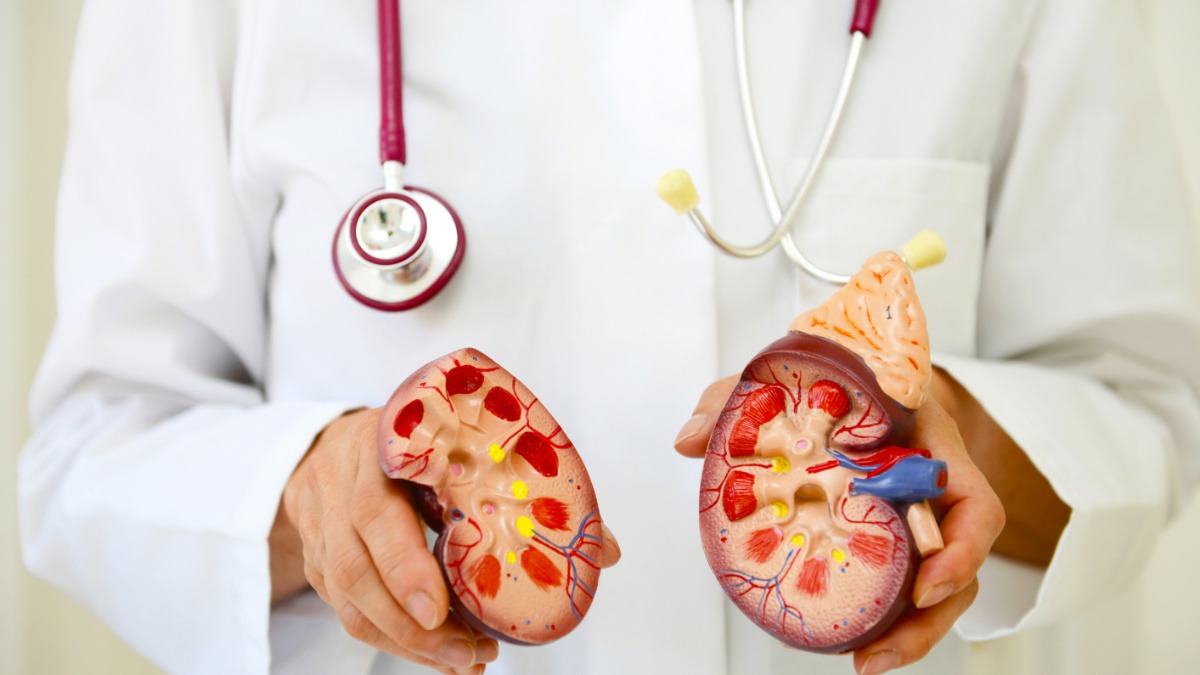Dimerix enters key collaboration to further boost ACTION3 trial recruitment in UK

Dimerix has entered a UK collaboration to identify patients for its ACTION3 trial. Pic: Getty Images.
- Dimerix enters collaboration with UK’s National Registry of Rare Kidney Diseases
- The collaboration will prospectively identify suitable patients for its ACTION3 Trial
- Registry is largest kidney association in the world with records of 34,500 patients recruited
Special Report: Clinical-stage biotech Dimerix has entered into a collaboration with the UK’s National Registry of Rare Kidney Diseases (RaDaR) to prospectively identify suitable patients for its ACTION3 Phase 3 trial of lead drug, DMX-200, to treat focal segmental glomerulosclerosis (FSGS).
Dimerix (ASX:DXB) said RaDaR is a UK based kidney registry – the largest of its kind in the world – led by University College London Professor Danny Gale to collate information on patients diagnosed with certain rare kidney diseases, including FSGS.
DXB said RaDaR holds records of more than 34,500 patients recruited from 109 hospitals across the UK, was run by the UK Kidney Association and established with funding from the Medical Research Council, Kidney Research UK, Kidney Care UK, and the Polycystic Kidney Disease Charity.
Under the terms of the collaboration, RaDaR will identify and contact UK patients with FSGS who meet the ACTION3 inclusion criteria and provide those interested in participation with contact details for their nearest clinical trial site.
In further positive news, DXB has also received approval for its Investigational New Drug Application from the Thai Food and Drug Administration, a prerequisite for trial initiation.
DXB said it expected recruitment to begin at clinical sites in Thailand in the coming weeks.
Rare disease with limited treatment options
DXB said FSGS was a rare disease that attacks the kidney’s filtering units, called the glomeruli, where blood is cleaned.
This results in irreversible scarring, leading to permanent kidney damage and eventually end-stage kidney failure, requiring dialysis or transplantation.
DXB said the prognosis for those diagnosed with FSGS was poor with the time from diagnosis to complete kidney failure only five years on average.
The disease affects both adults and children as young as two years old. For those fortunate enough to receive a kidney transplant, ~60% will experience a recurrence of FSGS in the transplanted kidney.
Currently, there are no drugs specifically approved for FSGS anywhere in the world, limiting treatment options and overall prognosis.
DXB said the FSGS market was significant, with more than 80,000 people in the US affected and around 220,000 worldwide.
So far so good
The Phase 3 study is titled Angiotensin II Type 1 Receptor (AT1R) & Chemokine Receptor 2 (CCR2) Targets for Inflammatory Nephrosis or ACTION3 for short.
It is a pivotal multi-centre, randomised, double-blind, placebo-controlled trial evaluating the efficacy and safety of DMX200 in patients with FSGS who are on a stable dose of an angiotensin II receptor blocker (ARB).
Once stabilised on an ARB, patients are randomised to receive either DMX-200 (120mg capsule twice daily) or a placebo.
The ACTION3 clinical trial is currently recruiting across 16 of the 19 planned countries, with a total recruitment target of 286 patients.
Due to varying regulatory and ethics requirements in different regions, the opening of clinical sites is staggered from country to country. The trial will follow the 286 patients over a period of two years.
An interim analysis released in March found that DMX-200 outperformed the placebo in reducing proteinuria (efficacy), as measured statistically, within a significantly larger participant group of 72 randomised patients compared to its earlier Phase 2 trial involving eight patients.
DXB said this suggested the study could potentially see a statistically significant and clinically meaningful reduction in proteinuria at the study’s conclusion.
The trial’s Independent Data Monitoring Committee (IDMC) has also affirmed no safety concerns related to DMX-200, further enhancing the drug’s safety profile.
A further blinded interim analysis is planned after the first 144 patients reach 35 weeks of treatment.
DXB said the study was designed to capture evidence of proteinuria and kidney function (eGFR slope) during the trial and aimed at generating sufficient evidence to support marketing approval.
Results of the second interim analysis are expected in around mid-2025.
Improved recruitment rates in UK
DXB chief medical officer Dr David Fuller said he was confident the collaboration would enhance recruitment rates in the UK for the ACTION3 Phase 3 trial.
“We are very pleased to be working with RaDaR on this collaboration, as it provides a unique way to connect with FSGS patients across the UK for potential trial participation,” he said.
“The UK has an excellent renal research infrastructure, and RaDaR has a strong track record of helping companies recruit patients for new treatments targeting rare renal diseases, such as FSGS.”
Professor of Nephrology UCL Department of Renal Medicine and chair of the UK Rare Diseases Committee, UK Kidney Association Daniel Gale welcomed the collaboration.
“Data from the RaDaR registry showed that people with rare kidney diseases, such as FSGS, have a significantly higher risk of requiring treatment for kidney failure compared to the broader population with chronic kidney disease,” he said.
“Many RaDaR participants are aware of this risk and are keen to explore research trials that could address this unmet medical need.
“We are pleased to work with Dimerix to inform RaDaR participants who may be eligible for the Phase 3 study in FSGS, helping them to learn about the study and decide whether to participate.”
This article was developed in collaboration with Dimerix, a Stockhead advertiser at the time of publishing.
This article does not constitute financial product advice. You should consider obtaining independent advice before making any financial decisions.
Related Topics

UNLOCK INSIGHTS
Discover the untold stories of emerging ASX stocks.
Daily news and expert analysis, it's free to subscribe.
By proceeding, you confirm you understand that we handle personal information in accordance with our Privacy Policy.








